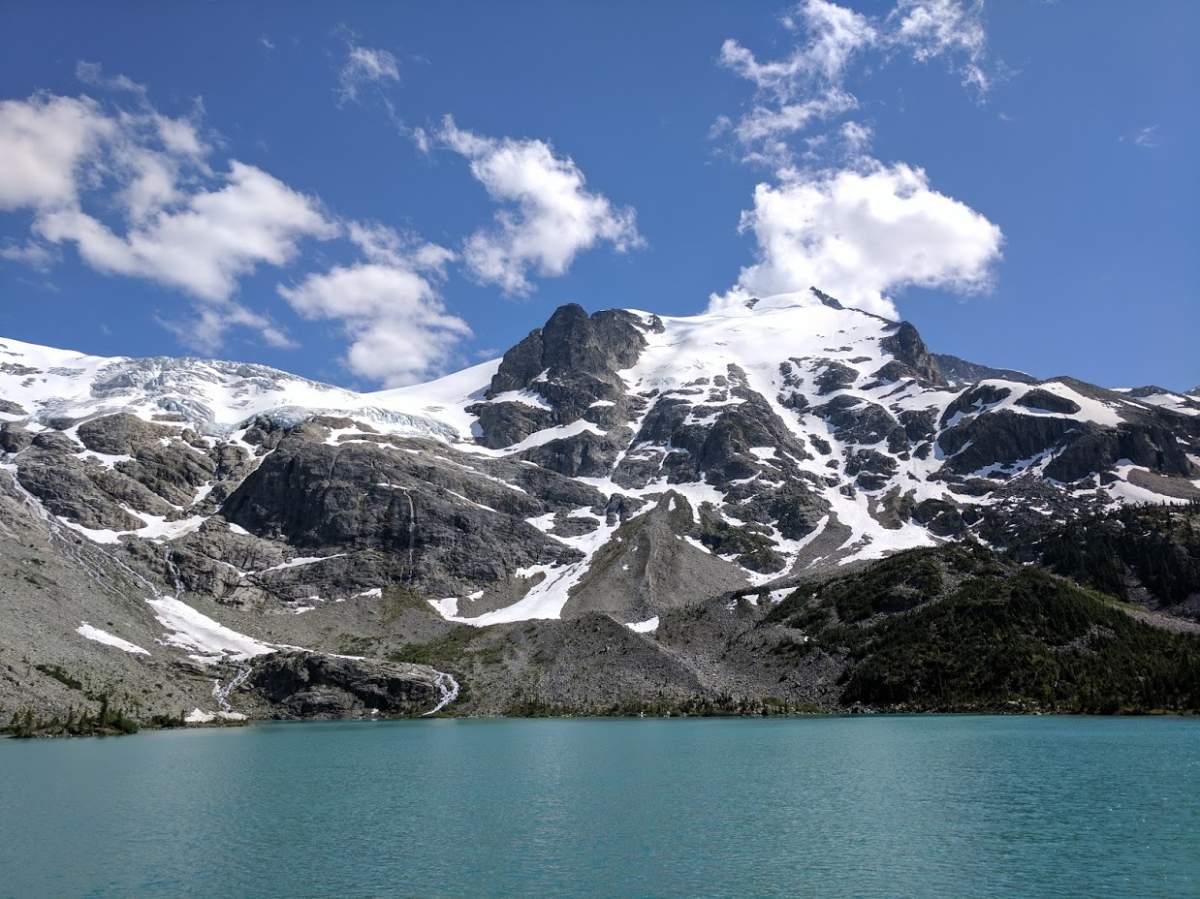The province is changing its approach to one of B.C.’s most spectacular — and busy — provincial parks.

Joffre Lakes Provincial Park, located about 35 kilometres east of Pemberton, has been swamped with a 168 per cent increase in visitors since 2010, according to the Ministry of Environment and Climate Change Strategy.
That surge has resulted in a plethora of problems, ranging from traffic and parking chaos to mountains of trash.
READ MORE: All those picture-perfect Instagram posts downplay risk for hikers, North Shore Rescue warns
Now, the province is launching a new Visitor Use Management Action Plan, developed in consultation with the Lil’wat Nation and the N’Quatqua, which seeks to address some of the park’s biggest problems.
WATCH: BC Parks warn hikers about crowds at Joffre Lakes

The plan will also look at possible day-use fees or a hard cap on the number of day-use visitors, should “sustainable visitation levels” remain a problem.
Key to the plan is nearly doubling the available parking spaces at the park from 250 to 450, which it estimates could accommodate about 1,350 people per day.

Get daily National news
READ MORE: There are so many Deep Cove hikers that North Vancouver district has had to restrict them
The expansion will be done in phases, with work on the overflow lot taking place in early summer and the main lot in the fall.
It’s also adding a $10 round-trip shuttle from the nearby Duffery Lake Provincial Park parking lot to the Joffre Lakes trailhead, to act as an overflow during weekends and holidays.
WATCH: Facebook post highlights garbage at B.C. park

While the province expands parking options, it says it will also crack down harder and tow people who park illegally on the Highway 99 shoulder when the Joffre lots are full.
In a bid to limit the environmental impact of the surge of park visitors, the plan also makes reservations mandatory for Joffre Lakes’ backcountry campground.
The province says its new Joffre plan will also boost the role of Indigenous groups, adding two First Nations stewards who will work alongside park rangers.
The steward program is part of a BC Parks pilot project, and stewards will work to “educate visitors about the park’s natural and cultural values, provide outreach and conduct park management, including facility maintenance,” according to a ministry media release.
The park will also incorporate Indigenous culture and information into signage and look at possible First Nation-led cultural tours.
The ministry says it will evaluate the effectiveness of the action plan in fall 2019, and launch a long-term visitor use management strategy in spring 2020.








Comments
Want to discuss? Please read our Commenting Policy first.